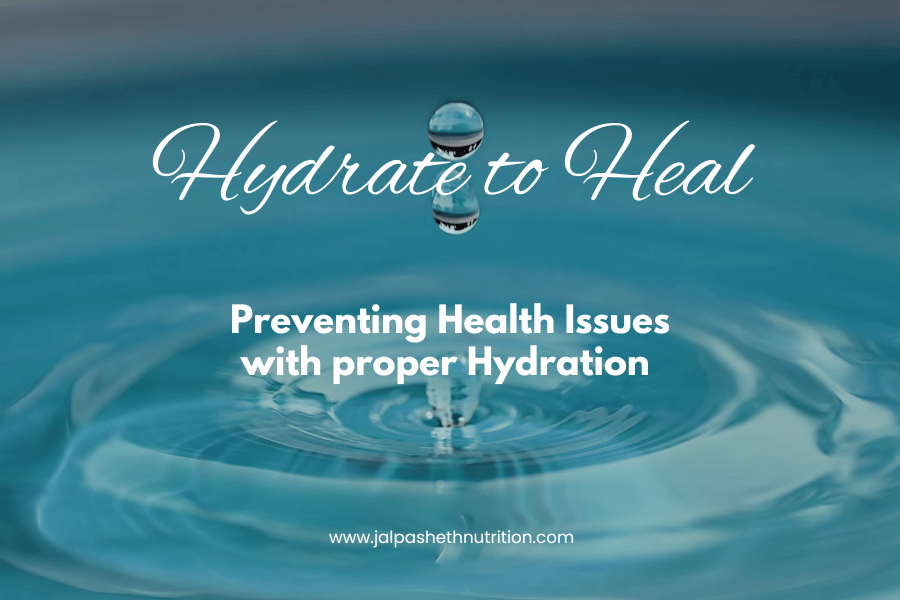Hydrate to Heal:Preventing Health Issues with Proper Hydration
Ever wonder why you’re always hearing about the importance of hydration? It’s because hydration to heal is truly a secret weapon for your health! Hydration to heal goes way beyond just sipping water—it’s about giving your body what it needs to work its best, from your brain to your belly. In this post, we’ll chat about how making hydration to heal a daily habit can help you prevent health issues and feel amazing, day after day.
Hydration to Heal:
The essential link between proper Hydration & Well-being
Your body loses water when you sweat, go to the bathroom, and even when you just breathe out. So, you need to drink enough water to replace what you lose. When you don’t drink enough water, you can become dehydrated.Most people think of dehydration as something that happens only on hot days or after workout-but the truth is even mild dehydration can quietly affect. Hydration is essential for maintaining overall health and the proper functioning of virtually every system in the body. It helps regulate body temperature, lubricate joints and deliver nutrients to cells, ensuring proper organ function and preventing various health issues. All its core staying hydrated is essential for nearly every function-from circulation to digestion to brain process.
Type of Dehydration:
Dehydration occurs when the body loses more fluids than it takes in, disrupting the balance of water and electrolytes. There are three main types of dehydration, classified based on what’s lost: water, electrolytes, or both.
1. Isotonic Dehydration : Equal loss of water and sodium
- Cause: Commonly due to diarrhea, vomiting, or bleeding.
- Effects: Blood volume decreases, which can lead to low blood pressure and reduced oxygen delivery to tissues.
- Symptoms: Thirst, Dry mouth, Fatigue, Decreased urine output
2. Hypertonic Dehydration : Greater loss of water than sodium, leading to high sodium concentration in the blood.
- Cause: Often due to inadequate water intake, fever, excessive sweating, or diabetes.
- Effects: Water shifts out of cells to balance sodium levels, causing cell shrinkage.
- Symptoms: Extreme thirst, Confusion or irritability, Dry skin and mucous membranes, Muscle twitching
3. Hypotonic Dehydration Greater loss of sodium than water, leading to low sodium concentration in the blood (hyponatremia).
- Cause: Often from over hydration with water alone (without electrolytes), prolonged sweating, or use of diuretics.
- Effects: Water moves into cells, potentially causing cell swelling, especially dangerous in the brain.
- Symptoms: Nausea and vomiting, Headache, Muscle cramps, Seizures (in severe cases)
Why Hydration to Heal Matters:Common Health Issues from Dehydration
1.Fatigue & Low Energy: When you are dehydrated, your blood becomes thicker and your heart has to work harder to pump it. It can reduce the oxygen supply to your muscles and brain.That ultimately leads to sluggishness, tiredness, and less alertness, even if you’ve had enough sleep.
2. Headaches & Dizziness: Dehydration can cause your brain to temporarily contract or shrink, leading to painful headaches and light headedness.There is less blood flow to the head because the amount of fluid in your blood drops and that triggers headaches and that also causes migraines.
3. Constipation & Digestive Problems: Water helps keep your digestive system moving. Without it, you may experience constipation, bloating, or acid buildup.That leads to discomfort and long-term issues if not addressed.
4. Kidney Stones & Urinary Tract Infections (UTIs): Kidneys are essential in keeping a water balance and regulating blood pressure.The kidney rely on adequate fluid intake to filter waste from the blood. Insufficient hydration leads to more concentrated urine, which increases the risk of kidney stones and urinary tract infections.
5. Dry Skin & Premature Aging: Your skin needs hydration from the inside out. Hydrated skin looks plump, clear and radiant. On the flip side, dehydration can lead to dry, flaky skin and more pronounced wrinkles & aging.
6.Poor Cognitive Function: Your brain is highly sensitive to fluid loss.Just a small drop in hydration levels can impair your concentration, memory and mood.You may feel foggy, irritable or less productive.
7.Weakened Immune Function: Your immune system depends on hydration to transport nutrients and remove toxins.Staying hydrated supports your lymphatic system and helps flush toxins from the body, which is vital for a well-functioning immune system.Dehydration weakens your body’s ability to fight off illness and slows recovery time when you’re sick.
Practical Tips for Healing and wellness with proper hydration:
Staying hydrated is essential for energy, focus, digestion, and overall health. Here are simple and effective strategies to help you maintain proper hydration throughout the day:
1. Drink Water Regularly:Drink water regularly, because thirst is a late sign of dehydration, and aim to sip it consistently throughout the day rather than all at once.
2. Know Your Daily Needs:
General guideline: Men: Approx.~3 liters.
Women: Approx.~2 liters
3. Eat Hydrating Foods : Incorporate foods with high water content, such as:Watermelon, Cucumber,Oranges, Celery, Lettuce, Zucchini, Tomatoes.
4. Carry a Reusable Water Bottle: keep it within reach—on your desk, in your bag, or in the car—as a visible reminder to help you increase your water intake.
5. Infuse Water with Natural Flavors : Infuse water with natural flavors by adding slices of lemon, cucumber, mint, berries, or ginger to make it more appealing and easier to drink more without adding sugar or calories.
 6. Monitor Your Urine Color
6. Monitor Your Urine Color
- Light yellow = well-hydrated
- Dark yellow or amber = drink more fluids
7. Set Hydration Reminders: Use phone alarms, hydration apps, or smart bottles to track your intake, and aim to drink a glass of water when you wake up, before meals, during and after exercise, and before bed to ensure you stay consistently hydrated throughout the day.
8. Adjust for Activity and Weather: Drink extra water before, during, and after physical activity, and increase your intake even more in hot or dry weather to replace fluids lost through sweat.
9.Limit Dehydrating Drinks: Minimize intake of: Caffeinated beverages (coffee, soda), Alcohol, Sugary drinks.
10. Choose Electrolyte-Rich Options When Needed: Use electrolyte drinks or coconut water during intense exercise, heat exposure, or illness, choosing low-sugar options that contain sodium, potassium, and magnesium.
Conclusion:
Hydration isn’t just for workouts or hot summer days—it’s a powerful daily practice that helps your body heal, recover, and function at its best. When you hydrate to heal, you’re giving your body the tools it needs to stay energized, balanced, and resilient. Pairing regular water intake with water-rich foods like fruits and vegetables strengthens your body from the inside out.
The bottom line? Don’t wait until you’re thirsty. Consistent hydration supports your health every day and can help prevent health issues before they start. Make it a habit—and make your well-being a priority.

So, what are you waiting for? Start your hydration journey today with us Jalpa Sheth Nutrition and wellness, LLC and feel the difference it makes in your life with a variety of hydrating drinks and food ideas.Book an appointment on-site at one of our locations or online with our Dietitians.





 Cope with Your Emotions without Using Food
Cope with Your Emotions without Using Food


 Chronic stress, however, is the detrimental one. It’s hard to feel. It’s hard to admit that you’re under stress, because it’s “normal” to just be busy and live with it. Your body is in a very mild “fight or flight” response mode over time, and with no real chance to recover and settle down, the adverse effects start adding up.
Chronic stress, however, is the detrimental one. It’s hard to feel. It’s hard to admit that you’re under stress, because it’s “normal” to just be busy and live with it. Your body is in a very mild “fight or flight” response mode over time, and with no real chance to recover and settle down, the adverse effects start adding up.

 Find 5 minutes (3-4x a week) where you go into a dark spot, turn your notifications off, and set a timer. Just sit and breathe for those 5 minutes. Let your body completely relax and take a full break from everything going on. Even moms with littles can do this for 5 minutes. No excuses!
Find 5 minutes (3-4x a week) where you go into a dark spot, turn your notifications off, and set a timer. Just sit and breathe for those 5 minutes. Let your body completely relax and take a full break from everything going on. Even moms with littles can do this for 5 minutes. No excuses!
